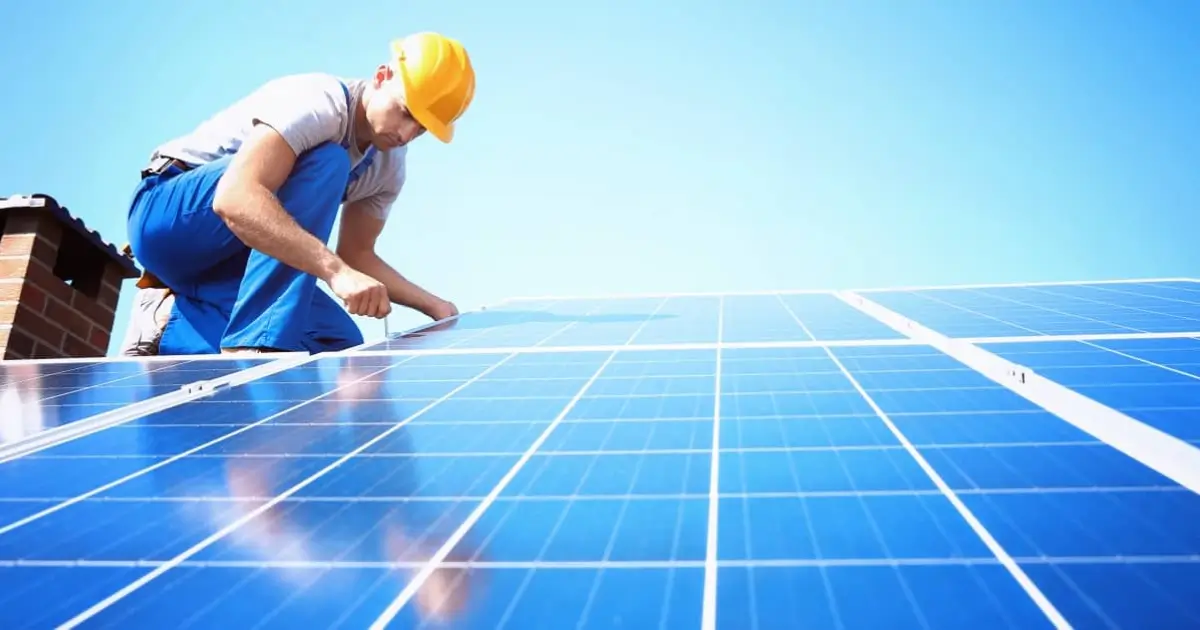Choosing the Right Solar Installer for B2B Solar Financing
In the ever-changing world of renewable energy solutions, businesses are increasingly turning to solar power as a sustainable and cost-effective alternative to traditional energy sources. However, navigating the complex process of solar installation and financing can be difficult, particularly in the B2B sector. This comprehensive guide aims to provide businesses with the knowledge and insights needed to choose the best solar installer for their B2B solar financing requirements.
Assessing Solar Installer Expertise and Experience
When it comes to selecting a solar installer to finance B2B solar projects, knowledge and experience are essential. A reputable solar installer should have a track record of successful installations, especially in commercial and industrial settings. Businesses should inquire about the installer’s years of experience, the number of projects completed, and the system sizes they have handled.
Furthermore, it is critical to evaluate the installer’s familiarity with local building codes, permitting processes, and incentive programs, as these variables can have a significant impact on the overall project timeline and cost.
Evaluating Solar Installer Certifications and Credentials
In the solar industry, certifications and credentials demonstrate an installer’s professionalism and dedication to quality workmanship. Businesses should prioritize solar installers who have received relevant certifications from reputable organizations such as the North American Board of Certified Energy Practitioners (NABCEP) or the Interstate Renewable Energy Council (IREC).
These certifications confirm that the installer has received extensive training and demonstrated expertise in solar system design, installation, and maintenance.
Evaluating Solar Installer Financial Stability
When financing B2B solar projects, it is critical to consider the solar installer’s financial stability. A financially stable installer is more likely to provide dependable and consistent service throughout the project’s life cycle. Businesses should ask for financial statements, credit reports, and references from the installer to assess their financial health and stability.
It is also advisable to inquire about the installer’s insurance coverage, which includes general liability and workers’ compensation, in order to reduce potential risks and liabilities.
Examining Solar Installer Customer Service and Support
Customer service and support are critical components of any successful solar installation project. Businesses should look for solar installers who value clear communication, responsiveness, and transparency throughout the process.
A reputable installer should be able to provide detailed project timelines, regular progress updates, and timely responses to questions or concerns. Businesses should also inquire about the installer’s post-installation support services, which include system monitoring, maintenance, and warranty coverage.
Assessing Solar Installer Equipment and Technology
The installer’s use of high-quality solar equipment and technology can have a significant impact on the system’s performance and longevity. Businesses should evaluate the solar panels, inverters, and racking systems used by the installer, ensuring that they are sourced from reputable manufacturers with a track record of success.
It is also critical to consider the installer’s approach to system design and optimization, as well as their ability to incorporate advanced monitoring and control technologies for optimal energy management.
Evaluating Solar Installer Financing Options
When it comes to B2B solar financing, businesses should carefully consider the financing options available from the solar installer. Many installers work with third-party financing companies or provide their own financing options, such as leases, power purchase agreements (PPAs), and loans. Businesses should compare interest rates, terms, and conditions across multiple financing options to determine the best fit for their budget and long-term objectives.
FAQs
Why is it critical to select the appropriate solar installer for B2B solar financing?
Choosing the right solar installer is critical because it directly influences the success, efficiency, and return on investment (ROI) of your B2B solar project. The right installer will ensure a smooth installation, peak system performance, and favorable financing terms.
What credentials should I look for in a solar installer?
Reputable solar installers should be certified by recognized organizations such as the North American Board of Certified Energy Practitioners (NABCEP) or the Interstate Renewable Energy Council (IREC). These certifications demonstrate the installer’s knowledge of solar system design, installation, and maintenance.
How do I determine a solar installer’s financial stability?
To assess a solar installer’s financial stability, request financial statements, credit reports, and references. In addition, ask about their insurance coverage, such as general liability and workers’ compensation, to help mitigate potential risks and liabilities.
What factors should I consider when evaluating a solar installer’s customer service and support?
Prioritise solar installers who value clear communication, responsiveness, and transparency throughout the process. Inquire about project timelines, progress updates, and post-installation support services like system monitoring, maintenance, and warranty protection.
How important is the quality of the solar equipment and technology used by the installer?
The installer’s use of quality solar equipment and technology has a direct impact on the performance and longevity of your solar system. Examine the solar panels, inverters, and racking systems they use, making sure they come from reputable manufacturers with a track record.
Which financing options should I consider for a B2B solar project?
Many solar installers work with third-party lenders or provide their own financing options, such as leases, power purchase agreements (PPAs), or loans. Compare interest rates, terms, and conditions across multiple options to find the best fit for your budget and long-term objectives.
How do I ensure a smooth permitting and incentive process?
Choose a solar installer who has extensive experience and knowledge of local building codes, permitting processes, and incentive programs. Their expertise in navigating these factors can have a significant impact on the overall project timeline and budget.
What factors should I consider when it comes to post-installation support and maintenance?
Inquire about the solar installer’s post-installation support services, such as system monitoring, maintenance, and warranty protection. A reputable installer should offer comprehensive support to ensure your solar system’s long-term performance and efficiency.
How do I assess a solar installer’s track record and experience?
Examine the solar installer’s years of experience, the number of projects completed, and the variety of system sizes they have undertaken, particularly in the commercial and industrial sectors. A proven track record of successful installations demonstrates their expertise and dependability.
What are the advantages of selecting the appropriate solar installer for B2B solar financing?
Choosing the right solar installer can lead to a smooth installation process, improved system performance, better financing terms, and a higher return on investment (ROI) for your B2B solar project. It also provides long-term support and maintenance, increasing the longevity and profitability of your investment.
Conclusion
Choosing the right solar installer to finance B2B solar projects is a critical decision that will have a significant impact on the investment’s success and profitability. Businesses can confidently select a solar installer who meets their specific needs and requirements after thoroughly evaluating factors such as expertise, certifications, financial stability, customer service, equipment quality, and financing options. Remember, making an informed decision today can pave the way for a sustainable and prosperous future powered by solar energy’s limitless potential.







